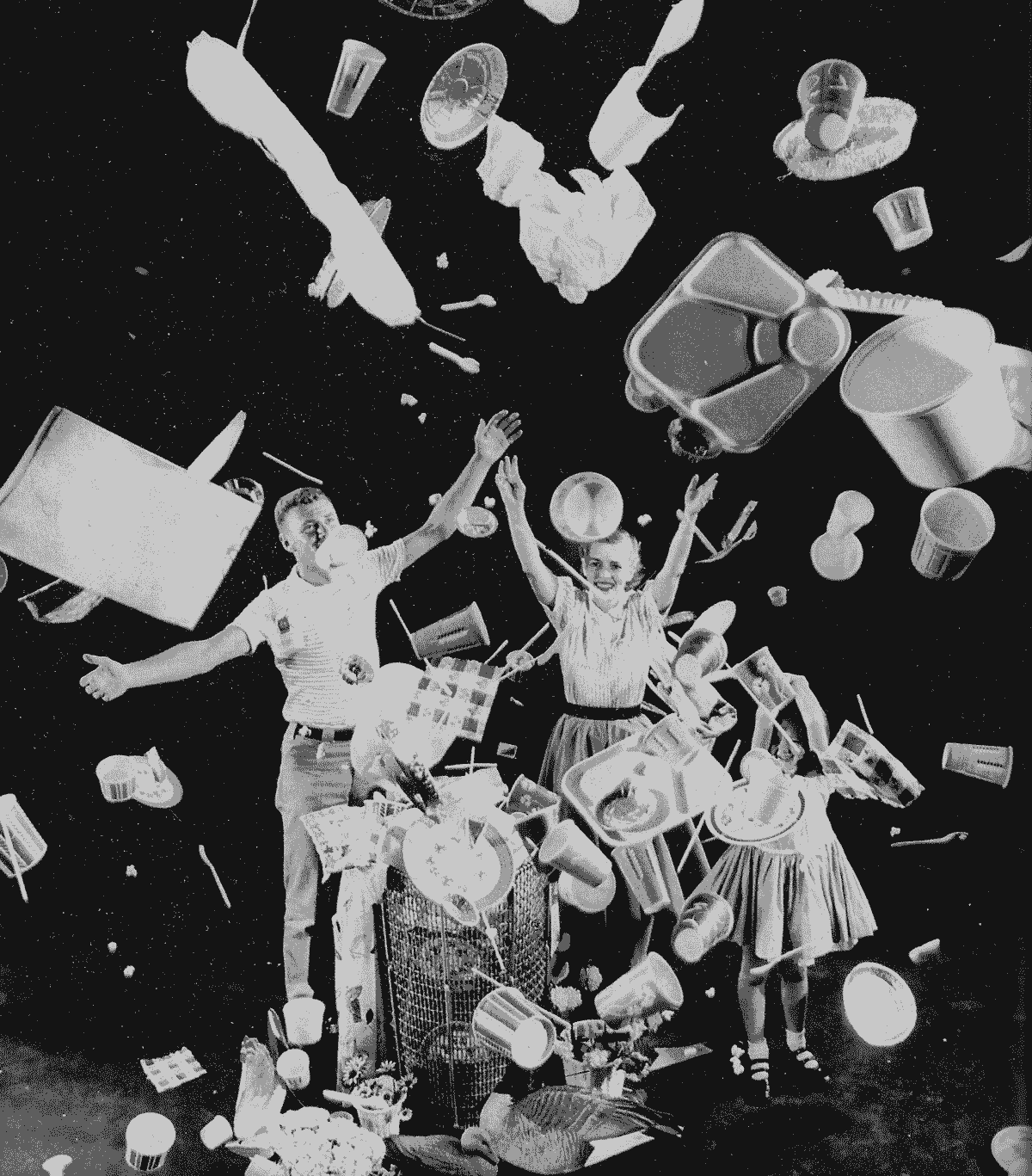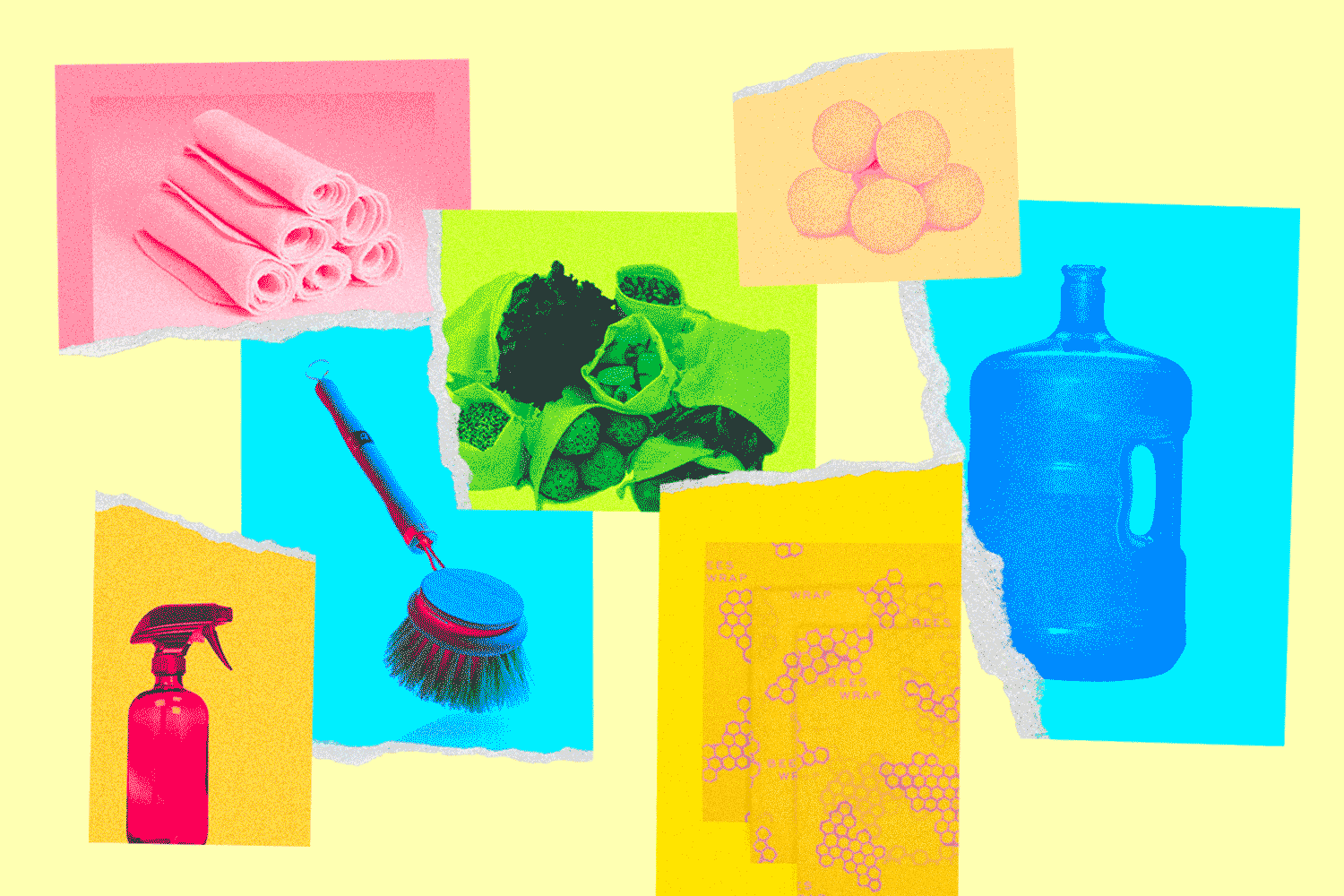The U.S. in particular has this insane “throw-away” mentality. Thanks to advertising in the ’50s, plastic became the new exciting thing due to its cheap costs. The problem extends beyond that — we throw away everything. Every damn thing imaginable. Furniture, appliances, electronics, dishware, and don't even get me started on the food. If something breaks we tend to throw it away and buy another, right? I too can be guilty of this but lately, I’ve been more and more aware as this issue becomes more of a crisis.
The concept of recycling has been a thing for ages yet it’s not advocated enough or flat out isn’t as easy as it should be. There are a variety of factors that come into play here sadly. I do believe that you can take control of your recycling habits like ordering take-out or finishing off a jar of apple sauce, for example. The containers generally need thorough washing and can be recycled without a problem (if it's not styrofoam). Feel free to check out this handy resource that lists a plastic cheat sheet helping you understand what can/can’t be recycled.
Feeling Helpless but not Hopeless
I know I can't be alone in feeling like the problem is so massive that it can’t be undone by a single individual. We can begin to practice the mentality of a “little goes a long way” especially if that mentality holds and is passed on to others. I believe my generation will turn this throw-away mentality into a thing of the past. It’s beyond time to look onward to a greener future because we desperately need it.
Becoming aware of your habits is the first step. I realized how much waste I alone was contributing to the issue at hand and I needed to make a change. Let me state that by no means am I living a zero-waste lifestyle but there are steps each and every one of us can take to be closer to that. With that said, let me share some things that I personally take part in:
The Kitchen
I'll get straight to the point. Swapping out items for eco-friendly items is actually incredibly easy and requires very little effort.
Paper Towel Alternative // One of the easiest things to stop purchasing is paper towels. Drying your hands, cleaning up messes, etc. can all be done without a paper towel. Instead, try a reusable 100% cotton towel that can be thrown in the wash over and over.
Drinking-Water // If you're buying large quantities of bottled water, that’s massive use of plastic. Instead, check out something like the Berkey which filters water straight from the tap. The waterborne contamination removal is top-notch. I know the water filtration stuff can be pricey upfront..but hey, it can last up to 10 years! Additionally, most grocery stores have water services for you to refill your various-sized jugs. If you’re on the go, another obvious alternative is to purchase a stainless steel water bottle to refill endlessly.
Plastic Wrap Alternative // This another great and easy change to bring into your routine. Stop buying a plastic wrap to cover your leftovers and use something like Bee's Wrap to be put to work time and time again. Nope, it doesn’t make alter the taste of your food and it's compostable!
Food on the Table
Grocery Shopping // Have you ever gathered fruits and veggies at the store and begin searching for those single-use green/clear plastic bags to hold everything? Well, these reusable cotton produce bags are yet another glorious alternative. Of course, when you're checking out at the grocery store, be sure to use a large reusable shopping bag there too (Trader Joe’s sells them right by the checkout lanes). Reusable bags within reusable bags! Double win.
Farmers Markets // There are so many benefits from shopping local. One of those benefits is, you guessed it, reducing your plastic usage. Most of the fruits and vegetables are just waiting to be bought as is — you can pick them up and place them within your reusable cotton bags. Nothing is more frustrating than seeing two bell peppers sitting on a plastic plate that is then wrapped in saran wrap...I'm looking at you Trader Joe’s!

The Bathroom
Body Soap // I think this one might be pretty obvious but I’ll mention it just in case. Instead of purchasing that bottle of liquid body wash, how about a solid bar of soap? Depending on where it’s bought, they're generally made of quality ingredients and contain no packaging when purchased from the store.
Deodorant // Many people have a tough time with this one, myself included. I’ve tried endless “natural” deodorants only for them to leave you stinkin’ up the place. I am currently using Myro — they sell refillable pods made from #2 plastic, making them easy to recycle. Check it out for yourself! Hard to pass up on those natural ingredients too.
Cleaning Supplies
Household Cleaning // Most cleaning supplies contain an insane amount of toxic chemicals. Have you ever cleaned your bathroom using these products and felt light-headed afterward? Making your own cleaner will save you from the harsh chemicals and of course, save more plastic as those cleaner containers can almost never be recycled.
Dishwashing // In the past, I typically washed dishes with a plastic brush or the Scotch-Brite sponges that are wrapped in plastic upon purchasing. This wooden dish brush is a great alternative because you can purchase replaceable heads if it gets worn out. Highly recommend.
Dryer Sheet Alternative // Have you ever used dryer sheets and instantly toss them after each use? These wool dryer balls can help reduce drying time, static, and even soften your laundry as it dries. The best part is applying essential oils to them to make your clothes and towels smell oh so nice.
Little changes can go a long, long way
Imagine if every single one of us made these changes. I’m not telling you to drop everything you’re doing and make all of this happen overnight. My advice is to start by trying out one “green” alternative each week and gradually bring in the new habits. You'll actually begin to save money because you won't be throwing things away!
The best part about reducing your impact on the environment is positively impacting your well-being. The greener alternatives generally have quality ingredients, no dyes or fragrances, and no chemicals. Thus, easing the toxic load on your body and energizing your life for the better.
I hope this was helpful in some way. Again, just looking to inform others as it’s an important topic very near and dear to me. If you have suggestions of other things to do, get in touch and let me know! I love making additional changes to reduce waste even more.


No Comments.